DO PROBLEMS EXIST?
In the course of this text I am exploring the idea if "problems" aren't more of a concept than a fixed reality. It's all about systems thinking.
But first: Has it ever happened to you that you came through the front door with a proposition and no matter how hard you tried to create a good dialogue with a person, that it just didn't work out?
What do I mean by "front door"?

picture source: pixabay
For example the firm resolution "we have to talk". Has it ever worked in the way you imagined it to work?
Or an assumption or suspicion that is difficult or impossible to prove? For example, learning from children "exactly what was going on".
Or to ask someone the question: "Are you so aggressive because you had an aggressive father?", the moment someone appears aggressive?
Maybe you have other examples of front door confrontations? Then I would be pleased to hear them.
Dive into Systems
In this excellent class given by Dr. Qi Van Eikema Hommes from MIT you are going to hear about systems thinking in comparison to scientific thinking to which I refer also down below. She gives a very clear speech and interesting examples from both industry and the human social realm. It's the newest and best lecture I so far came across. Here you can see the presentation slides of her class.
When you search for a more modern form of lecture you'll notice that the speakers try to integrate their audience. Much is to say about teaching and learning. I only want to briefly mention that ...
... it is apparent to anyone who has taught others that the teacher learns more than the students do. Teaching is a much better way to learn than being taught. Schools are upside down. Students ought to be teaching and faculty members should be learning how to help others learn and how to motivate them to do so.
A student once stopped me in the hall and asked, "Professor, when did you teach your first class?" That was easy: I answered, "September of 1941." "Wow!" he said, "You have been teaching for a very long time." I agreed. Then he asked, "When was the last time you taught a course in a subject that existed when you were a student?" This question required some thought but finally I got it and answered, "September of 1951." He said, "Do mean to say that everything you have taught for about fifty years you had to learn without having it taught to you?" I said, "Yes." "Wow,” he said again. "You must be a pretty good learner." I modestly agreed. He continued, "What a pity you are not that good a teacher." He had it right: faculty members know how to learn better than they know how to teach. Therefore, they should be acting as resources to students who are either engaged in teaching others, or learning on their own or with others cooperatively.
source: TRANSFORMING THE SYSTEMS MOVEMENT
What is a system?
Some time ago I was dealing with a case involving a family that I supervise in my open counselling hours. It is a family with a different cultural background - we call them "immigrants". I have to mention that because it plays a role.
But before I go into the details I first want to present - in a simplified way - what a system is.
In the words of Russel Ackhoff:
1. A system is a whole which contains two or more parts.
Each of which can affect the properties and the behavior of the whole.
2. None of the parts of the system have an independent effect on the whole.
How any part affects the whole depends on what other parts are doing.
Between any parts of the system there is a direct and indirect path.
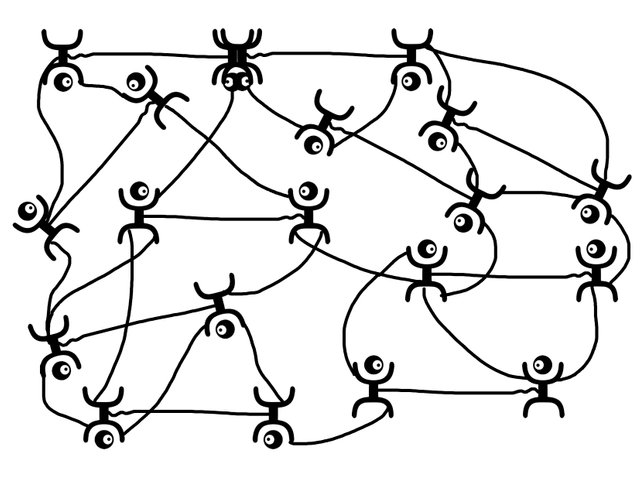
3. If you group the system into subgroups, no matter how many sub-groups you have, each of them will have an effect on the whole system. And none will have an independent effect.
A system is a whole which cannot be divided in two or more independend parts.
The whole system derives from the way how the parts interact and not how they act separately.
A system as a whole has a property of which none of its parts have.
Take your physical body. Only the whole body can take you from one place to the other, but none of the bodies parts - legs, lungs, heart, brain - can do that on their own.
Russell Lincoln Ackoff (12 February 1919 – 29 October 2009) was an American organizational theorist, consultant, and Anheuser-Busch Professor Emeritus of Management Science at the Wharton School, University of Pennsylvania. Ackoff was a pioneer in the field of operations research, systems thinking and management science.
A more detailed explanation you can find in this paper or here, from where I quote:
The author of General system theory was Ludwig Von Bertalanffy in 1950’s. A system is a complex of elements in interaction, which on first appearance does not seem interconnected or inter related.
Systemic or systems thinking were developed and discussed among a variety of scholars and non academics in different parts of the world, in particular during the 60s. In the last two years I published several articles on the topic, referring to my profession as a social consultant, a summary of some of those texts you find here.
A statement which Mr. Ackhoff gave in one of his speeches I found particularly significant:
"You cannot understand the nature of a system by analysis."
An analysis in the scientific sense is when you isolate a part from its whole and examine it. You determine its properties, you get behind its function.
Analysis is the process of breaking a complex topic or substance into smaller parts in order to gain a better understanding of it. ... The word comes from the Ancient Greek ἀνάλυσις (análusis, "a breaking up", from ana- "up, throughout" and lusis "a loosening").
The German wiki adds:
The opposite of analysis ("dissolving into individual components") is synthesis ("assembling elements into a system").
In the above linked paper Russell Lincoln Ackoff says - referring to the circumstances of our times:
I believe the pattern of thought that is required is systemic. It is difficult if at all possible to reduce the meaning of "systemic thinking" to a brief definition. Nevertheless, I try.
Systemic thinking is holistic versus reductionistic thinking, synthetic versus analytic. Reductionistic and analytic thinking derives properties of wholes from the properties of their parts. Holistic and synthetic thinking derives properties of parts from properties of the whole that contains them.
Deriving from the average does give some but not enough clues for the particular and the whole
As a social worker, I have always wondered what benefits scientific results and studies could be for me in a particular case, and very often I have not found one. The "unfortunate" thing about studies on the human psyche is that they have to reduce a complex issue and apply analytical methods, that they have to be repeatable and take place under laboratory conditions so that they can indeed be repeated. In addition, scientists are interested in questioning what their previous colleagues have found to date and doing more research. But repeatability, reductionism and refutation do not help me so much for the very unique encounters, expressions and views of the clients and my own in relation to the whole.
Just think about how far we've come from the times where Freud published his findings or other academics and where we today know that many of the findings science was pretty confident about changed quite a lot over time.
I very much appreciate that the paradigms are shifting and that both - systems and scientific thinking - can coexist, for those thinking methods have undoubtably their advantages.
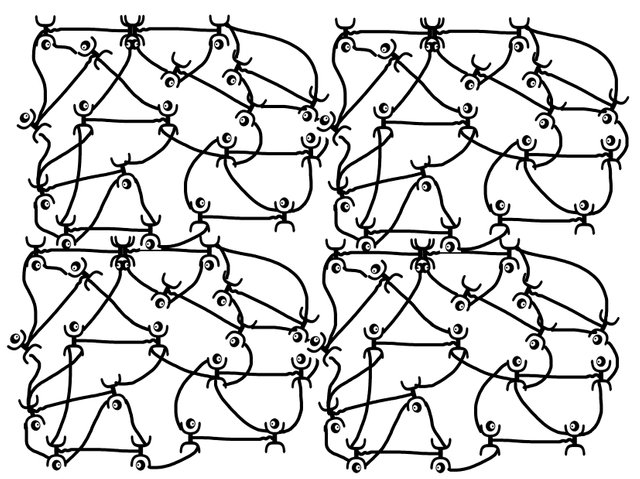
School system
The example in the further text deals with the social system "school" and the sub-systems "families" as well as "pupil" and "teacher". The superordinate system is the social matrix into which this school and all other systems are integrated. This is primarily the German nation. But above this is the community of all people.
Here I depict a feedback in the system in which the events are taken up negatively:
Event perceived as erroneous --> communication of this event as erroneous to other parts of the system
--> continuation of this form of communication in the system as far as no other form of event perception is offered
--> amplification of the event communicated as erroneous to the reporters
--> negative feedback to the participants triggering the event or identified as event-triggering
It's also possible to change that into a positive feedback loop.
After this introduction, I want to go into what I daily deal within my profession as a social consultant.
The case
The mother came one day with the information that her daughter, who goes to primary school, has problems with her classmates and that they would have complained to their parents at home, and there would also be physical quarrels. The teacher called a meeting because her interventions with the children were unsuccessful and the quarrels between the children continued. The teacher sought support from the school's trusted teacher and, at the meeting, called on a so-called cultural representative to help and at the same time act as a translator. This man though, was not confirmed by the family. I speak to the family in English, which is very well spoken by both parents.
Without going into too much detail, the other two children were said to have reported to find the girl's behaviour alienating and frightening, although not much can really be said about it, as the adults are always pre-influenced in the children's hearing and their own interpretations of the events are already part of the system. A cultural conflict can be suspected or I should better say, seems to be constructed.
More than one possible reality?
If, for example, there had been no complaints from other parents, the teacher would probably have settled the matter internally. Now, however, if she felt compelled to react to the complaints of the parents more so than to experience the girls in their daily activities and re-arrange the framework of her interaction with them she might have been able to make a difference in the so far outcome of the event.
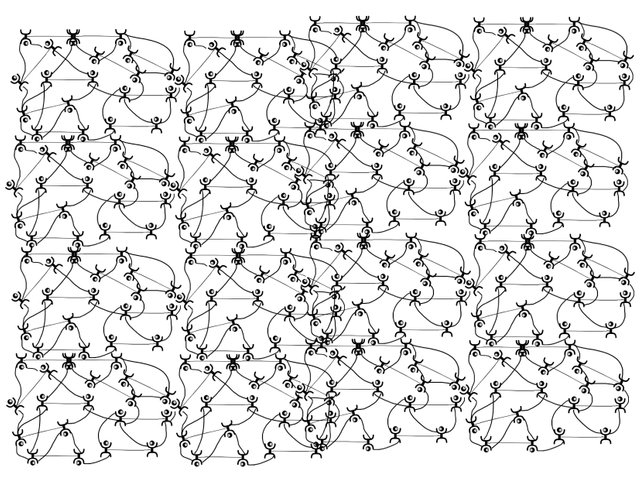
For now, however, It is in the air that the parental style of upbringing, which seems at first sight so different from our culture, could be a problem (without being proven). Such suspicions are not dismissed, as they occur in the individual cases and appear where the children of immigrant families seem to find themselves between two chairs. What they are taught in school and the social fabric that exists there, and what their parents consciously and unconsciously pass on in terms of cultural heritage seem to be two different things. But the question is: Are they really so different?
From a systemic point of view, a super-construction already prevails, namely the view, generally perceived as valid, that "people from different cultures inevitably come into conflict". This "superordinate" system influences the "underlying" sub-system, here school and parental home, which can be viewed as an organic system that interacts with one another.
Actually, there is no problem. It's created through thinking in a mindset focused on problems
All this does not necessarily have to be reflected in conflicts. For example, when the actors in that system do not try to control the actions of the systems-participants but handling the interactions in a manner of skillful spontaneity, respectively through an aesthetic approach.
The system surrounding the family could have reacted differently. The parents of the girls who complained at home could, for example, have responded calmly to their children's fears or questions. Instead of picking up their daughters communicated anxiety.
Now, the fact that they did not do so indicates that they are worried, firstly about their own child and maybe secondly about the daughter of the family they are talking about.
Single actings and control seeking
However, action by the school has already taken place and it seems impossible to say to what extent and in a way which is understandable to the girl's parents the "problem" has been appropriately brought to their attention. The teacher says that the parents have been informed in good time, the parents say that they were not. In the meantime, the girl was asked to sign a contract in which she promised that she will not fight her comrades anymore.
There is dissatisfaction among the participants because it is unclear whether and to what extent the size of the (created) problem actually still affects the children and not more strongly the adult participants.
Behind the "strange behaviour" of the daughter, the adults - teacher and other participants - suspect that the daughter could be beaten at home. In a recent meeting, the girl was told that "no matter what the problem, she could come to the responsible person."
The assumption implied here, that the girl is abused at home and that her behaviour at school is a kind of desperate expression of this behaviour, is in question.
None of this needs to be true.
It could as well be that the girl is still undecided, as she actually reacts to her border crossings in two seemingly different cultures, of which she is already beginning to see the differences - after all, case is strong, that the construction of this different realities are already set implicitly by the behaviors and emotions of all actors of the system. From a systemic point of view this is most likely to take place; looking through the eyes of that girl.
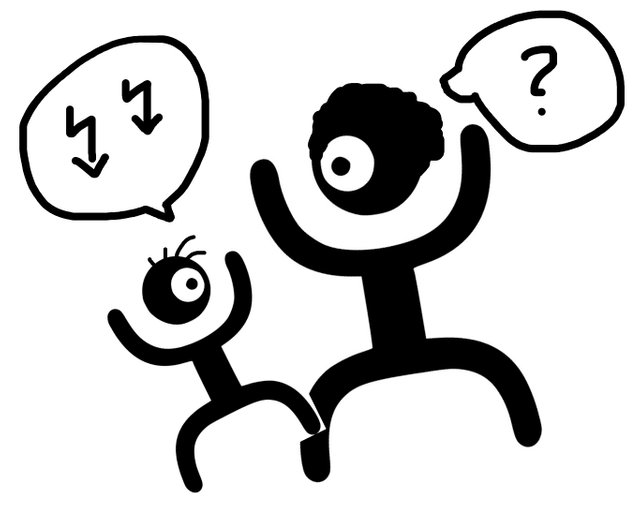
That made me pensive and I came and come back in time to consider whether under the surface of the rejection of punishment exactly this is still very strongly rooted in my culture. For we seem to find "praise" right, which is the opposite of punishment. So how can we make ourselves believe that we are against punishment when we so much plead for praise? It is generally spoken openly in schools and parental homes, yes, my son is asking to receive such praise. But what is meant by "praise" is a different chapter.
What children want is not praise, but encouragement.
That is something completely different. No adult, not even a child, falls for the idea that praise might have something to do with someone being authentically interested in their well-being.
Praise is the quick way out if you don't know how to encourage someone. After all, praise is only given retrospectively, i.e. when a thing has already been completed, while encouragement is given in advance. Pre-spectively. Praise promotes an action or omission, encouraging points at interaction and a process in the making.
If you have not completely forgotten how intelligently and sensitively you recognized these differences as a child, then it helps you to trust these senses in your present adult life as well.
Children knock off and test how their fellow human beings react to what they still have to explore in the situation. Children move through their space and want to experience how their fellow world reacts to what they are told as a kind of rule, but have not yet really experienced. Therefore they want to go into the experience and try many different things.
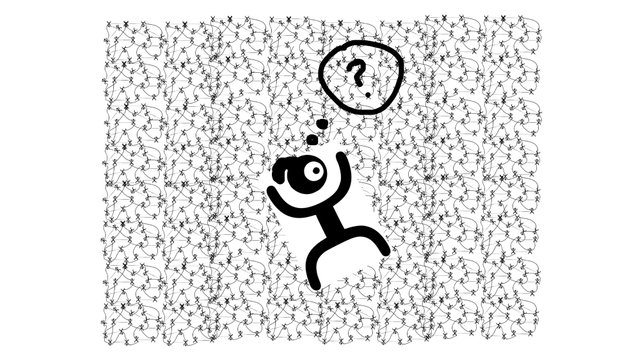
Children encounter many contradictory statements and behaviors in the surrounding social matrix.
So they try to find their way around. If something is regarded as problematic and only as problematic, then of course not the child and not his parents are to blame for it, not the teachers either, then a system of many social actors tries to construct a reality to guarantee something like stability.
Indeed, the girls behavior indicates "a mess" in the system and she represents a "disturber". Her parents might construct "racism", the teacher might construct the "foreign culture as problematic" as well as the other parents to which their daughter has reported and received back some emotions which might have strengthen this construct of problems.
This construction of reality cannot have any claim to absolute truth simply because it is a social construction in which everyone is actively involved. It contains all the contradictory feelings and voices of individuals who, on the basis of their own beliefs perceived as true, are at odds with the actions they have already carried out.
(Imagine for a minute all actors of the system would have constructed completely different realities.)
Taking myself into the equation
Although I am clearly against punishment, I had violated my son when he was young. I did it out of an unrestrained emotion. I also yelled at him (still do, feeling bad about it afterwards). Nevertheless, I told him time and again that one should not do such a thing. Inevitably I conjure up a conflict with it, for how can my son, whom I treated uncontrolled, now understand me? Should he follow my words, should he orient himself to the fact that one may lose control in time, because his parents did the same? He will feel both and do both. One time he will behave reasonably, the other time not.
When my son entered the new school after his elementary years, he got in trouble a lot and was fighting a lot. His teacher and I were meeting several times but it never occurred to me nor to the teacher that his quarreling might have anything to do with our cultural background - I even did not one second think about our little conversation back then. I was focused on how I could help my son and the teacher to get along.
So the question should not be why someone is punishing, because this question has long been answered: out of rage. Rather, one can ask: In which situations, in which you wanted to hurt someone, did you not do it? You can also ask: How did it come about that you did not distribute any punishment? What moved you to behave sensibly?
The construction of reality is known in systemic family therapy or systems theory understanding. We all construct reality in order to bring a certain order into the system and react to currents perceived as chaotic in the way of ensuring certainty. But if we try too hard to fix things as true or untrue, we fail because of the unconscious conflicting contradictions within ourselves.
Self reflection
If you say that punishing others is absolutely wrong, the logical consequence should be that you henceforth do not act punitively. But what do you do if you are not able to keep to your own rule? How do you want people to deal with you? To whom can you entrust yourself, with whom can you discuss your misconduct, and where do you find sensitive reflection that does not contemptuously eye and judge you, but shows you how to deal with yourself in a forgiving and affectionate way?
As far as your reality construction looks like you find your own misconduct unforgivable, you will tend to hide, embellish, or justify it if someone comes on the scene as your accuser. The actions of others must then be put in a worse light to distract from your own. The inevitability of your own actions is then expressed in not showing empathy to those to whom you accuse their evil intentions.
From a systemic perspective it does not make sense to ask the question of guilt.
One asks about your resources and the exceptions/events that confirm that you behaved benevolent in your system and where you felt comfortable afterwards. This is to encourage your future interactions, doing more of the same which serves not only yourself but all the others in the system. It's suggested to look at a problem as something containing already the solution.
Back to the girl one could ask the question to the teacher: "When is the girl a supporter for the class? Where did she proceed to be helpful, which of her interactions were perceived as motivating by her classmates?" This could help the teacher to take a broader perspective and leave the focus of the problem reality. She could report it back to the parents. The teacher would also have succeeded in strengthening her own position and proving competent in offering perspective change.
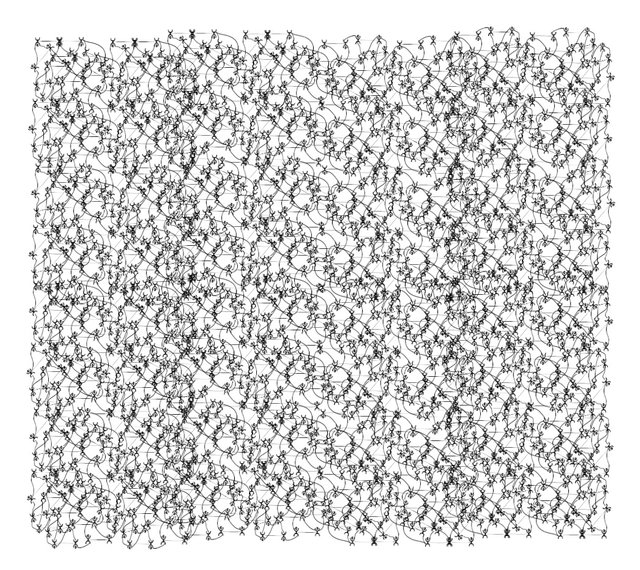
The art of questioning - approaching situations aesthetically
To effectively irritate the children when the teacher experiences them again as quarreling or beating, she could intervene by asking the children: "What do you think the ants would think if they observed you? What about the bird sitting up in the tree? How would your pet react to a brawl if you had pets?
The role of aesthetics is not as well understood in our culture as are the roles of science, technology, education and economics, or even as well as ethics-morality.
source: https://pdfs.semanticscholar.org/dd7e/f924e44861877b76d65a865754d741d07b0f.pdf
Basically, it is not so important which concrete example you choose, it is mainly to irritate the children and to arouse their interest with surprising questions - this I understand as an aesthetic approach. Such offers can then develop into further deeper dialogues, which children usually enjoy conducting, especially if they are still young and prepubescent.
Things happening right now must be seen as a system in which events occur to regulate this system. Systems never can be "fixed" but always are in the change, there is no end to an event, only temporarily taken up interventions in the way people interact with one another.
A problem occurring as a disturbance can be seen as being given a good opportunity.
You can always see a chance in it where such a constructed reality appears. Whenever a problem tries to construct or manifest itself, there is also a creative way dealing with an ambiguity. Because nobody, who does not construct a problem, would not be interested in finding an attitude that frees him from the shackles of frustration and uncertainty.
The superordinate system, which suggests to foreign families that their culture contradicts the culture existing in the country, generates a renewed self-suggestion that proves this construct right. Since there is always a core in it that regards it as problematic, there is a danger that those involved will become too attached to this form of reality. They overlook the fact that they can change this reality. That is in my eyes actually ...
... the true meaning of "constructive feedback".
What can the girl's parents do? They might consider abandoning this construction of reality - that they are discriminated against because of their ethnic origin - and substitute with another one. A creative leader within this group might find out what that could be; preferably the class teacher. Just to give an example, the parents - having received some guidance and inspiration - can ask themselves whether by abandoning this variant of reality they are helping their daughter to integrate more serenely into everyday school life. They could encourage their daughter to ask what rituals the parents of her school friends go through with their children. Have they been told bedtime stories or are they still telling them? Which fairy tales do the other classmates know and what is played at home?
Let's go all the way back to the beginning.
Children fighting in the schoolyard. They call out mean things to each other. They try out what they can do, sound out boundaries, move.
The chain of events did not need to take place at all. If children live in a world where adults are not constantly and permanently concerned with creating difficult realities, they can pursue their child-like things.

When two girls argue, physically argue, and these girls then go home and talk about how mean a classmate had been, do parents need to reinforce that? And if they then do this in the form of a complaint or a worried statement to the class teacher, does the teacher have to advance the construction of this reality?
And when the parents are invited to a conversation where (serious) things are discussed with them and their child, does the construction need to be further strengthened?
What if, instead, the teacher would make an opening irritating statement, like so:
"I am happy that me meet each other. Your daughter gave us all the good opportunity to come together and to learn something. I do not know right now the outcome of this meeting. So let's explore what we can come up with when we cooperate and ask the right questions." Also, the parents could start with this sentence.
Should it be about adults wanting to protect children?
But if you want to be a protector, you need something to protect others from, don't you? What would it be like if adults abandoned children as their projection surfaces and instead offered a different construction of reality?
In this context, I find it critical to realize a child's compliance with a rule in the form of a contract.
Imagine that you as an adult would be required to sign in front of witnesses - let's say colleagues at work and bosses - never again to annoy or offend anyone. But you suspect that you may fail. Because in fact, that is exactly what will happen. Nowhere in our adult existence do we have to confirm such things with our signature, they are rather the not quite concrete moral conventions to which we have said "yes" in principle.

In fact, one cannot pretend that this is a self-contained system.
Aren't all the rules outside school just as valid as in school?
Certainly. The children know that, too. So what about the teachers themselves, for example, who have children? Have they never violated their children, physically or mentally? Hardly.
Is the teacher never unfair, angry and has she never dragged a classmate with her or indirectly injured them? Didn't the others in the system let their temperament pass too? What about the pupils in the schoolyard? Those who were not caught fighting? Shouldn't they all be presented with the contract?
Wouldn't it then have been fair for all participants to have signed such a contract?
All this is also unconsciously and maybe also to an extent consciously clear to the girl.
So what will happen in the future if you focus on the deficit?
The girl could go on with beating her classmates. What then is a contract worth? What are the consequences? To what extent should the consequences be felt?
The girl will realise that signing the document is a kind of helpless attempt on the part of adults who cannot deal creatively with the situation. After all, it is not a question of the child not understanding what the rules say. She would very much like to follow the rules, but has not yet found a good way to do so.
Not only has the girl long since understood which rules apply, she also has to observe that her assurance that she understood the rules is not believed. The adults now want to justify this distrust by demanding her signature. If they had only considered once what it would mean for them personally to sign in front of witnesses and make a promise of which they cannot possibly know whether they will ever be able to keep it, they would probably have refused.
What I would like to warn against at this point,
however, is to think that the girl will be irreparably harmed and that she will suffer in the future as a result of these experiences. It is not said at all how the girl will later behave as an adult, there is no certainty at all as to how good or bad the girl's life is or will be. Only the amplification of the adults on this someone's nailing down view could contribute to the fact that this experience remains as predominantly destructive in the memory.
Surely there are experiences and events in your life that you have survived that have been difficult to really problematic? Then you know that there are ways to re-frame what you have experienced and to take other perspectives than what you may be used to. As long as you are alive, you always have the chance to take the creative freedom through the construction of reality, to do exactly that: to construct an alternative reality.
Without the systemic view of the whole, one tends to judge the single parts.
And therefore cannot find a creative way of interacting with them, especially since one's own experiences unconsciously play into it. "School" is a whole within which the individual participants can behave and work together to the extent that they take a systemic view. Because it's impossible to take oneself out of the equation and pretend to exist outside this system.
The girl merely draws attention to a weak point in the system: how her frontier experiences on the subject of right and wrong are conceived.
By living a highly individualized life in modern societies and assuming independence from our neighbour, we often don't have the real impression that our interaction has an effect in the system. Therefore, we are reluctant to change our perspective and interact with the other system participants by tending to start individual actions, while we are not aware that interaction actually takes place, but now beyond our conscious thinking.
I have known the family for several years, so I have an effect on this system - but even without knowing them, the effect would be there, but indirectly.
This text is therefore more than just an information and perspective giving publication.
It is at the same time a reflection of what is happening around me and the realization that I am part of the whole. This writing exercise should help me to find a good way to deal with my clients and to protect myself from the arrogance that I know exactly what to do. I think it's about asking questions in the upcoming meetings and pointing out systems thinking relevance.
Do problems exist?
Yes, they do. But:
Because there is no such thing as a final truth from the point of view of the individual participants in the entire system, why not accept that the construction of reality is ongoing? And because it is, you can take advantage of it and construct a reality of a kind in which collaboration aims to achieve consensual intermediate results that inspire to such an extent that you remain interested in this form of creative collaboration.
I finish with the words of Ackhoff:
Art inspires, produces an unwillingness to settle for what we have and a desire for something better. It is the product and producer of creative activity, change; it is essential for continuous development. Art also entertains, recreates, yielding fun from what we do regardless of what we do it for. It is the satisfaction we derive from "going there" in contrast to the satisfaction derived from "getting there." Recreation provides "the pause that refreshes." It recreates creators. We would not be able to maintain continuous pursuit of ideals without payoffs along the way.

All pictures above are from one pixabay origin and altered by me for the purpose of this blog entry.
Sources & References:
Youtube video - Van Eikema Hommes from MIT
Power point slides: https://sdm.mit.edu/systemsthinkingconference/2014/presentations/hommes.pdf
Russel Ackhoff: TRANSFORMING THE SYSTEMS MOVEMENT
Russel Ackhoff: https://en.wikipedia.org/wiki/Russell_L._Ackoff)
SYSTEM CONCEPTS:
https://nscpolteksby.ac.id/ebook/files/Ebook/Computer%20Engineering/Management%20Information%20System%20(2010)/4.%20Chapter%202%20-%20SYSTEM%20CONCEPTS.pdf
Analysis: https://en.wikipedia.org/wiki/Analysis
Repeatability
Reductionism
Refutation
Construction of reality
Systemic family therapy
Systems theory
A SYSTEMIC VIEW OF TRANSFORMATIONAL LEADERSHIP by Russell L. Ackoff: https://pdfs.semanticscholar.org/dd7e/f924e44861877b76d65a865754d741d07b0f.pdf
General System Theory - Foundations, Development, Applications - by Ludwig von Bertalanffy:
https://monoskop.org/images/7/77/Von_Bertalanffy_Ludwig_General_System_Theory_1968.pdf
WHAT IS SYSTEM THEORY? Rudolf E. Kalman:
https://www.kyotoprize.org/wp/wp-content/uploads/2016/02/1kA_lct_EN.pdf
http://www.gregoryhwatson.eu/images/Quality%20Progress_2010%20-%20Breaking%20from%20the%20Pack.pdf
"... it is apparent to anyone who has taught others that the teacher learns more than the students do. Teaching is a much better way to learn than being taught. Schools are upside down. Students ought to be teaching ..."
That's a great quote, and so true! Unfortunately the site doesn't seem to work. Can you paste the pdf here for me perhaps?
I think your son is right about punishment even though you never taught him that, in the sense that punishment has been encoded in all cultures and religions I know of, so it's no wonder it somehow came to him anyway! Education by praise alone is a quite modern invention borne perhaps by certain politically correct sensitivities. But even in this culture, turn on the TV to watch any new movie, and you'll see people punishing other people with violence, even in shows and movies that are not based around action, like rom-coms. One could say that punishment "is in our blood".
You can't really remove punishment, it will just take other, sneakier, forms. For example a student will sit at the cafeteria with other students and gloat about how much praise she received from the teacher today, thus making the other students feel pangs of pain inside them, which was exactly her intention. We'll always prefer some thing to some other thing, which means we'll always compare, which means we'll always hurt someone, so punishment of some form is inescapable, even if we get rid of the physical violence, we will adapt so that psychological violence will hurt just as much, just as very white skin reddens against a mildly strong sun.
But you kinda answer this in the 'What children want is not praise, but encouragement.' section, which I like.
In reference to the title, I'll ask: from a system's perspective, why would you want to solve any problem (whether it is by treating an acknowledged problem, or deflating it by saying it's not a problem)? For example you say "From a systemic point of view, a super-construction already prevails, namely the view, generally perceived as valid, that "people from different cultures inevitably come into conflict"." But wanting to bring peace to a situation is also a construction, right? Why do you have that desire? Why do you believe that peace and order is good and violence and chaos is bad? Why do you want to help that child? I think the answer is: because there's always the threat of violence looming. If the child's behavior becomes worse and worse, she'll end up in jail or something worse. If, on the other hand, the child was a king like Nero or something, she could act any way she wants with impunity. The only reason you want to "help" and instill order is because there is the possible threat of violence or something very negative associated with the future of this situation. At the end of the day we respond to negative and positive reinforcement like dogs, and the systems approach is no different I guess since its goals are also shaped by those twin forces.
"Basically, it is not so important which concrete example you choose, it is mainly to irritate the children and to arouse their interest with surprising questions - this I understand as an aesthetic approach."
It can also be seen as manipulation by someone who's smarter! It's a form of violence, in a way! :P To put this discussion a little bit into the determinism arena, at the end of the day we are all atoms. And atoms behave, let's say, more or less like billiard balls. And if you want to move a billiard ball, you have to hit it. In humans, we can also use persuasion, manipulation, etc. But it's just one billiard ball wanting to move another billiard ball. You are invading a person's space, in a way. You are doing something the other person does not already want to be done to him. The wanting comes only later. And, in this sense, it's a "violation". The "wanting coming later" is like the encouragement point you made, which comes before (whereas praise comes after, it's too late in the game). Similarly, as a billiard ball that wants to influence another billiard ball deterministically, the force and desire exists only in you, not in the other billiard ball (if it existed in the other ball, it would have already moved). So you use whatever method you choose to make the world change in the way you want, to make the push (by using violence, manipulation, persuasion, whatever). It always comes before, without permission, in the space where permission was not even possible, so in that very basic sense it's always a form of violence, and the child will only later be thankful for it (like being forced to learn mathematics, a foreign language, his own language, etc.) If we take the example of a "permission" that is often talked about: the permission a woman grants a man to have sex together, the feminist "yes". But if you go back, before that yes, you must, ultimately, arrive at a point where the "yes" was not possible. So, for example, in order to get that "yes", the man had to be polite, let's say. When did the woman exactly choose to accept politeness as something desirable for her? Or he has to wear nice clothes. When exactly did the woman decide that good clothes = "yes"? At the end of the day, we have a society enforcing values upon people through mass brainwashing. The first things that shape us are not chosen, they are forced upon us. And if a person discovers that some of those forcings are negative (for instance, the magazines that promote a certain view of how women or men should look like), then good luck trying to change people's opinions and "yes-es" about it!
I like what you did by taking just a single pic and making variations of it that express the post's developing thread! It's creative, like many of your thoughts. You made a lot of good points, as usual. My favorite and perhaps funniest section was where you pointed out how adults would not sign a contract in real life, how it would make them feel, and how it makes the girl stand out in a negative way.
Oh, and here is the link. On my browser it's working:
http://www.acasa.upenn.edu/RLAConfPaper.pdf
Yeah I get a 404 object not found, I tried 4 browsers! Is it possible to drop a pdf here like you would a picture? Never tried it. Or upload to some sharing site and drop the link?
Strange ...
I sent you the link on discord. I think it should work when you open it from there?
No droppings of pdf's here on this display possible.
This idea of not looking at things separately, but as part of an interrelated whole makes sense. The butterfly effect is almost another way of saying that, isn't it? Everything I do, everything that is done to me, affects others, ultimately, and perhaps minutely, the universe,
I do though like proof. I actually insist on it. And proof means being able to replicate a finding. How do I assess the validity of a claim? Is belief enough? That's tenuous. Does assertion suffice? No.
I need proof. I guess I'm stuck in the age of science.
An interesting blog. I wish that young lady well, and I'm glad you're there to counsel the family--not arrogantly, but intelligently.
Jordan Peterson makes that point well here:
6:24 min to ~ 8th min.
I think the message was delivered thousands of years ago by philosophers, Taoism--we are part of the whole, for example. This is intrinsically true. Even ashes to ashes, dust to dust. It all comes from the same whole and goes to the same whole. Nihilism is just a dark mood that won't lift :)
Nice to see you.🙂
In social interactions getting proof is not possible. To acknowledge, for example, that most of what I call my reality, is a construction of my mind, cannot be proven from the outside. I must experience it and investigate within myself, where and how I can see that I do that. Self-suggestions take place a lot in an unconscious way. When I am convinced that another one is not acting in my best interest, I search for his selfish behavior. Of course, I will find it. But that's not proof, right? It's a suggestion of mine. When two people concentrate on proof - either for benevolence or malevolence - they will argue whether it's there or not. They will get an even stronger case the more they argue.
I guess you see that as futile as well?
My argument that reality is not fixed is when I would ask you: What about a person you broke up with? Is this really the end? Is there a chance that either you or the other person could encounter anew? Who can take influence? When is it ending? What if you never hear from the other again? Has it really ended?
Isn't this what happens at a trial? An imperfect search for truth. Opinions and perceptions will always be dependent upon subjective interpretation. So the truth of a thing, between people, is really more a matter of agreement than objective fact. But science--whether or not metal melts at a certain temperature, whether or not bacteria thrive in a certain environment--this is the kind of proof I depend on. Nothing is certain, but science in this area is more certain than impression.
To answer your question about a relationship that has ended: nothing ends. It's part of a stream of experience and is always with us. The thing itself changes, and it changes us. Sometimes that idea haunts me when I think of some past unkindness I'm responsible for. This really prompts me not to repeat that behavior, because I realize it will always be part of me.
I hope you are finding peace these days. Be well.
AG
Yes, a good way to say it, that "the truth of a thing is more a matter of agreement".
I don't argue against science in this sense you consider it. I am in favour of an analysis if it proves helpful and offers approximate certainty. Nevertheless, scientists should not allow themselves to be overly taken in by their own specialty and their analytical habit - which they inevitably adopt - of looking at things too partially.
It would be very helpful for specialists to know and learn more about systemics.
My publications are almost exclusively aimed at bringing this way of thinking into the world. I see no shortage of scientific studies and treatises, nor of lectures on the net. But when I start a search on youtube under "systemic thinking" or even try the translator, there are hardly any sources worth mentioning and deepl.com does not know the word and always says "systematic". There is still a lot of educational work to be done in this field. The analytical way of thinking, on the other hand, has become so normal and such a habit of us modern people that we almost don't even notice that we do it all the time.
I feel the same when it comes to past relationships and my unkindness towards the people I was spending part of my life with. Better having not so much regrets. I agree very much on what you say.
Thank you for wishing me peace. It always comes its way :) I wish the same for you.
Haha :) I felt that literally when I had a C-section. It turned out that if you want to lift your bottle with water your abdominal muscles also take part in this movement. So, if they are cut, no water for you :D Oh, how naive I was about my body system back then :D :D :D
I couldn't agree more :)
Thanks for creating this wonderful article and presenting this case. When I worked in a school this finger pointing was the toughest part of my job. I was a school psychologist for a couple of weeks but then I quitted for the very reason that the principal of the school refused to see my role as a person who is there to dive into the conflict and see it as a whole. She expected me to point fingers to the "bad" kids and to calm down the "victims" and their parents. Which is what the school did in this case.
However, I am not sure that it is our individualism that gives us the illusion that we don't play a role in what's going on around us. Or it is just human nature to point fingers to find guilt. Have humans ever lived in organizations in which they didn't see problems but situations? It's just like our bodies and minds are made to recognize only conflicts and problems - adrenalin and cortisol rushes, fight or flight mode. It takes a conscious effort to reframe a situation and to make yourself behave in a different way. You don't ask these aesthetic questions spontaneously :) Or do you? :)
By the way, this is the first time I hear about these aesthetic questions. I should research it further :)
Thank you again for this wonderful sharing!
Yes, a very good example! If you have an operation scar, you know that everything is connected :)
I suppose until things change in school life some water will still flow down the rivers. Systemics is on the advance, but it seems that there is a lack of systemists in the individual disciplines or that proving guilty is a really annoying and persistent habit, which will only be balanced out by permanent different behavior and examples. But this takes time and patience. In any case, only a few percent of the population are willing to change their attitude to life, but often this small part is sufficient to bring about change. I am optimistic, because it is much more fun to live out one's own creativity than to get angry.
I don't believe that we are inherently problem-focused and adrenaline-driven. I think it's a way of looking at things. Take an ordinary day. Nothing special happens, you do your work or follow the tasks, you usually try to cooperate. Only the failures and exceptions, in which cooperation does not succeed, seem to be in the majority. But I don't think they are. They just like to be exaggerated and claim attention: undeservedly. The quiet tones can be learned to pay attention and the boredom in which nothing special happens can be regarded as an ideal. Just a long while :) Without the ability to put aside one's egoism and concentrate on the well-being of others, we as a human species would probably not have survived that long... ? Unfortunately, we have very dangerous tools and very powerful weapons at our disposal that could spoil everything. Well, you have to be optimistic here too, I think. Everything else is just depressing and leads to fear of life, which in turn inhibits the good things.
Sometimes the aesthetic questions come spontaneously. But often I have to think about it. When I have someone in consultation, I often remain silent for a while before I say something. For example, because I don't know what to say right now. Sometimes there is a flash of inspiration. But often not. I do not train that enough. You're right, you have to be constantly aware that you have the possibility. But it's really very stress-reducing.
Thank you for your thoughts and comments, which I always find valuable and complementary.
I try to live in this way but I often fail and get carried away by "problems" :D
I agree with you that we wouldn't survive as a species if it wasn't our cooperation. And that we don't necessarily aim to get into conflicts in the first place. I find myself lately to have a very low opinion for our humankind :/ Maybe it's about time I put some conscious efforts to reframe it and look more optimistically at our future :)
Hi @erh.germany!
Your post was upvoted by Utopian.io in cooperation with @steemstem - supporting knowledge, innovation and technological advancement on the Steem Blockchain.
Contribute to Open Source with utopian.io
Learn how to contribute on our website and join the new open source economy.
Want to chat? Join the Utopian Community on Discord https://discord.gg/h52nFrV